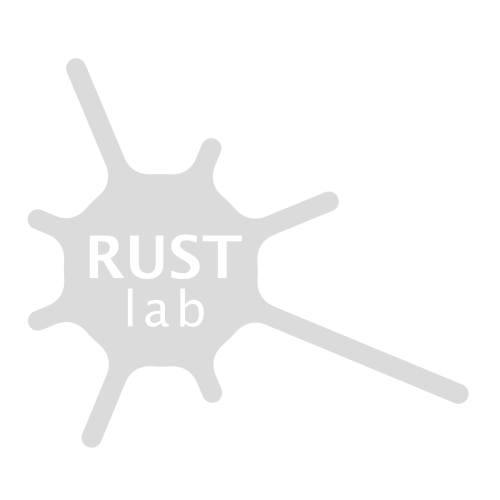This summer term 2022/2023 we present to you our 8th round of RUSTlab Lectures. Come and join us on-site at the RUSTlab in Bochum or tune in live via ZOOM, Thursdays from 16:15-17:45 hrs (for the last lecture 14:15-15:45 hrs), German time, for exciting talks and discussions around this term’s guiding theme: Data at work

All lectures will be on-site at the RUSTlab as well as live on ZOOM, Thursdays from 16:15-17:45 hrs / 14:15-15:45 hrs, German time.
Address: Universitätstr. 104, 44799 Bochum, Room 201
ZOOM: https://tinyurl.com/RUSTlab
Password: RUSTlab
Data at work
Each professional field has its own ways in which they produce and process data (Sørensen & Kocksch 2021). Even in the sciences, what counts as data – and when – differs highly from discipline to discipline. Data are also put to work in professional settings. They have agency and work upon work – and other – practices (Gray & Suri 2019). The 2022-2023 winter series of the RUSTlab lectures will address data at work both in terms of data in professional settings and in terms of data’s agency.
Practices of collection, sorting, management, analysis, and storage of data are never detached from the context of their occurrence (Loukissas 2019). We inquire into how particular forms of data get shaped and make it possible for people to understand them and their work processes in specific ways. Data involve local and institutional interpretations, expectations, values, and decisions that are contingent upon technical, organizational, and normative infrastructures (Bowker & Star 1999). How do such contingent interdependencies shape data?
Data are not only worked upon, they also themselves work upon work practices (Dourish 2017). The presence of data and the expectancy of increasingly more data shape new imaginaries about how future work conditions will be. More than adapting data to work conditions, data instruct corporations as to how to adapt workflow to dataflows. How do data work, when do they work, how, and for whom?
Data also shape uncertainty and insecurity. Data steal individuals’ privacy and institutions’ security, and an arms race of data circulation and cultures of technosecurity unfold (Weber & Kämpf 2020). How are data worked upon to ensure anonymity and cybersecurity? What is thereby protected and what is promoted?
We want to discuss when, how and with what consequences data are at work. As part of this, we also want to acknowledge the joy of data at work: the fun of tinkering with a nice data visualisation, the gratification of doing data analysis or subjecting yourself to new data science tools. What a relief of having a good data management programme to help you organize your work processes!
“Data at work” sensitize us to observe, be critical and to look for the pleasures that happen, when data are at work. We invite speakers and discussants, friends and visitors of the RUSTlab to join us in discussing these and related issues in our RUSTlab Lectures over the winter term 2022-23. Our discussions always rely on original empirical research and will attend to data at work in big tech platforms (Kontareva), in police interrogations and research transcriptions (Komter), in cybersecurity (Wisse), and in the practices of crafting anonymity (Schmutzler).
Download the PDF file of this text.
For more information, including PDFs and posters of previous lectures, visit here.
References:
Bowker, G. & Star, S.L. (1999). Sorting things out: Classification and Its Consequences. Cambridge, MA: MIT Press.
Dourish, P. (2017). The stuff of bits: An Essay on the Materialities of Information. Cambridge, MA: MIT Press.
Gray M.L. & Suri, S. (2019). Ghost Work: How to Stop Silicon Valley from Building a New Global Underclass. Boston, MA: Houghton Mifflin Harcourt.
Loukissas, L.A. (2019). All Data Are Local: Thinking Critically in a Data-Driven Society. Cambridge, MA: MIT Press.
Sørensen, E. & Kocksch, L. (2021). Data Durability: Towards Conceptualizations of Scientific Long-Term Data Storage. Engaging Science, Technology, and Society 7(1): 12-21.
Weber, J. & Kämpf, K. (2020). Technosecurity Cultures. Science as Culture, 20(1).
